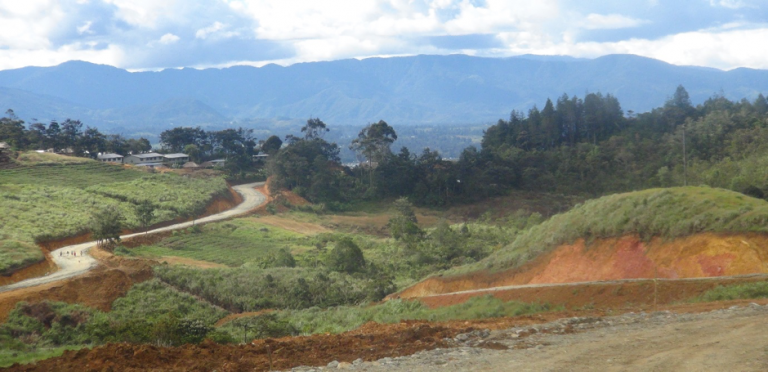Just recently, University of Sydney’s Senior Lecturer in Political Economy Dr. Tim Anderson gave his presentation on the “Framework for Assessing Compensation for The Wrongful Loss of Customary Land.” One of the things he argued was that there was a lack of concrete processes in determining the financial value of land in the country. However, it may not just be a lack of process that’s serving as a roadblock. It may also be the lack of laws that protect the rights of landowners – especially for customary land.
So, what are the implications that may arise from this? What actions can be done to resolve this gap? Experts in the field weigh in.
Setting the backdrop
While Dr. Anderson says that land is not a commodity in the country, Act Now Programme Manager Efrey Dademo mentions that there are commodities that can be derived from customary land. In a conference last 22nd of May 2017, she explains, “The wellbeing and livelihood of our people is directly linked and central to our customary land and the economic value that it possesses.”
Dademo continues, “Our people’s resilience to the financial and food crisis in the world is because of the fact that they still have their land in their aid at this time on which they are planting cash crops and food to consume and sell, fuel for cooking, building materials for housing and other livelihood necessities.”
This is something that Dr. Anderson agrees with as well. He said in his presentation that Customary land can be a source of greater economic returns.
Identifying the problem
Dr. Anderson states that the reason why the greater economic returns are not being received is because the government trades these land for special agricultural business leases. He mentions that a little over 5 million hectares have already been leased out to corporations. In turn, customary landowners are dispossessed of their properties.
Dr. Anderson adds that “In 2013, the government was made aware through a Commission of Inquiry (COI 2013) that these leases were unlawful for failure to follow proper process under the Land Act and, in particular, for their failure to ensure the free prior and informed consent of customary landowners.”
Addressing the Dilemma
The problem with the current setup of Papua New Guinea is not that there is a lack of law for customary land. The problem is that there is an absence of law to address customary land issues, thereby leaving customary landowners defenseless. This is according to a recentarticle from The National.
This lack of provision for already existing laws at the moment to be used to do the opposite of what it was intended to do. Communal Land Law Foundation principal adviser Mali Voi states, “Currently, our legal system is using the English common laws that do not capture the interest of our traditional or customary land issues.”
Voi adds that this allows preference to foreigners rather than the country’s people. He explains, “The current laws are used to dispossess us as we’ve been dominated by foreigners and we are basically helping the foreigners rather than helping our own people.”
Dademo echoes this and says that the government was “persuaded by outside interests with the focus to promote unrestrained economic growth and export earnings in the false hope that this should improve lives of the majority of the people.”
This has been an ongoing issue for years now, but there are those in the government itself who are also trying to change the current situation by proposing amendments to the current law regarding land. Now, whether this tension dissipates or not is only a question of how these efforts to change the system will make a difference to the current government’s decision.




Comments